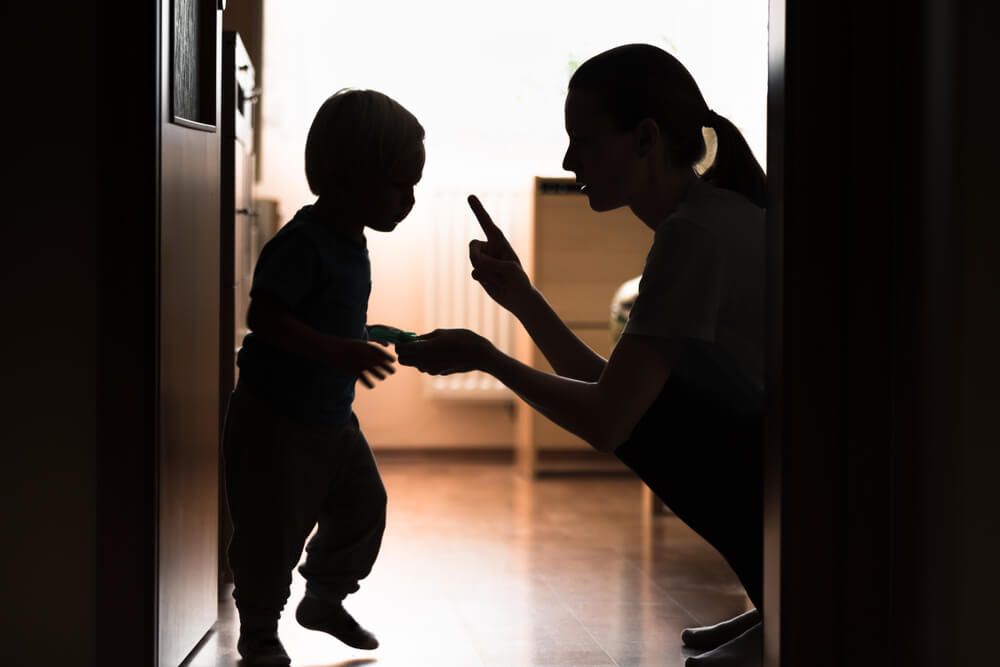Educating without shouting is the best option that we can take as parents and educators, shouting is neither pedagogical nor healthy for the child’s brain, because far from solving something, what we get with this is to activate two types of emotional responses: fear and / or anger. So let’s learn to educate, heart-based discipline, empathy, and responsibility.
Those who are parents or who work daily in the world of education and education will be tempted several times to raise their voices to, at some point, stop disturbing or provocative behaviors, a tantrum that defies all our moderation. Deny it, there are many moments like this, these are times when tiredness is combined with stress and the level of our despair overflows.
The cries do not educate, educate with cries deafens the heart and closes the thought.
Giving up, screaming, it’s something a lot of people do, it’s not a parent taboo. In fact, there are those who claim that the screams as well as the?Work, they’re useful. Now make no mistake, because those who choose to educate by shouting and see with good eyes these resources have normalized behaviors: perhaps they were applied as children, now, as adults, they cannot use other tools, other useful and respectful alternatives.
Educating without shouting is not only possible, it is necessary, to discipline, correct, guide and teach without shouting has a positive impact on the development of the child’s personality, it is an effective way to take care of the emotional world, to take care of himself – esteemed, to set an example and show that there is another type of communication, which does not harm, that knows how to understand and connect with real needs.
What we as parents and educators have noticed many times is that sometimes we lack resources, strategies and alternatives, we know that shouting does not work and that with it you never get the desired result, what we do is that the eyes of the child Show the brightness of fear, of the contained rage?That is why it is necessary to learn the right keys to educate without shouting, to capture a positive education capable of intelligently solving such situations.
Thus, a first aspect that we cannot lose sight of is the impact that screams have on the human brain and on the neurological development of the child. Scream? It has a very specific purpose in our species and in any other: to warn of a danger, of a risk. Our alarm system is activated and cortisol is released, this stress hormone aims to put the physical and biological conditions needed to escape. or fight.
In this way, the child who lives in an environment where crying is used and abused as an educational strategy will undergo very specific neurological changes: the hippocampus, the brain structure linked to emotions and memory, will be reduced in size. , the junction point between the two hemispheres, also receives less blood flow, which affects their emotional balance, attention span and other cognitive processes.
Screaming is a form of abuse, an invisible weapon that is not seen, that cannot be touched, but its impact is simply devastating on the child’s brain, this excessive and permanent release of cortisol puts the child in a state of constant stress and alertness. in a situation of anguish that no one deserves and no one should live.
Pedro is 12 years old and does not do very well in school, his parents now take him to an institution where they give him additional courses to reinforce various subjects, including internships, he gets up every day at 8 a. m. and returns home at 9 a. m. : 00 at night. During this quarter, Peter failed two subjects: mathematics and English, two fewer than in the last trimester.
When he gets home with the bills, his father can’t help but yell at him. He can’t stay passive and throws away all the money that’s invested in him for nothing. The typical phrase “you’ll be nobody in this. “Life “is not lacking either. After the rebuke, Pedro closes in the room, thinking that the world is not worth it, that he wants to leave school and leave the house as soon as possible, away from everything and everyone, especially his parents. “.
This situation, certainly known in many households, is a small example of what causes the unfortunate cries and words that are expressed at some point, however, let us see in more detail what this can cause if this type of reaction is common and repeated in a family environment.
Children and adolescents interpret crying as a reflection of hatred; if your parents speak to them in this way, they will feel rejected, despised, and despised.
As we said at the beginning, there are many alternatives before resorting to shouting, various strategies that can help us build a more thoughtful dialogue, a positive education based on these pillars where we can build a healthier bond with our children. some basic keys.
In conclusion, educating without shouting is first and foremosh a personal choice that requires the will and daily work of the whole family, it must also be said that there is no magic key that can be used in all situations and with all children. are some that are useful to most: sharing quality time, giving consistent orders, identifying as unconditional support figures, or encouraging them to take on the responsibilities that are within their reach for their level of development.

